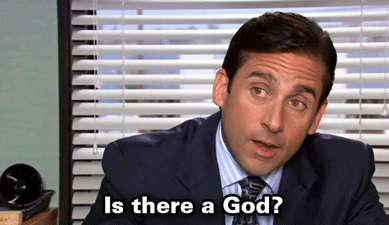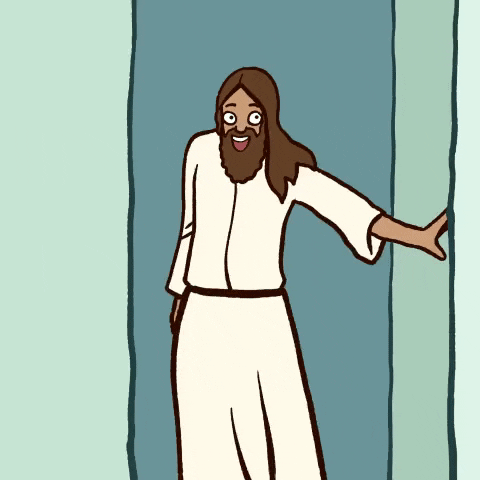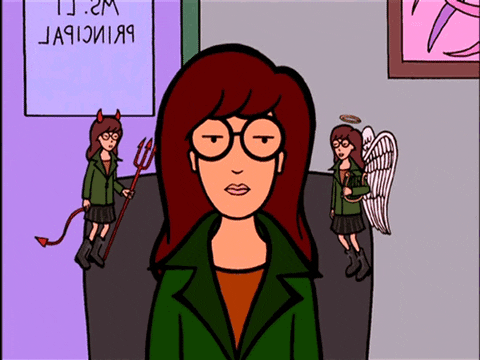My group read Fear Gone Wild: A Story of Mental Illness, Suicide, and Hope Through Loss by Kayla Stoecklein. It was our last text in our How Writers Read class. This book was hard for me to submit to the reading. Even harder than Slade House, which had soul-eating twins. Green’s book, Turtles All The Way Down, and Plath’s, The Bell Jar, told mental health in an enlightened way and did not dismiss it, which made it easy to submit to the narrator and the text. This book was a memoir about the author losing her husband, Andrew, to suicide, and it talked about mental health. As I read for the thematic register, I read to know more about the story and the author. That meant that I was interested in how the author would continue out the story, though I predicted there would be a lot of God involved and less of Andrew. I was curious about the story and craved to know how it ended, and it did with talk about Christianity.
You mean it ended with the attempt to persuade an audience who is struggling to square their Christian faith with the real occurrence of mental illness?
You might be wondering why it was a challenge to submit to the text. My group and I had a difficult time understanding Stoecklein and her beliefs about mental illness. There are two types of readers, and one is the capable reader, which James E. Seitz explains in “A Rhetoric of Reading”, as, “one who not only has the ability to ‘follow’ the text but also the ability to jump ahead of it …” (146)
So that was me when I started reading the story. I understood the story involved a suicide, either ending on it or talking about it throughout the book. The reason being was that Stoecklein said,
“I had it all. The man, the kids, the beautiful house, and even the mom car. My future was full of vibrant colors, grand adventures, and wonderful purpose- until it wasn’t. When fear crept into our house, it dimmed the lights and swiftly spread like wildfire. Our peaceful home, our predictable life, our hopeful future, all set ablaze by mental illness”
(3)

It was easy to tell how the story was going to play out as Stoecklein grabbed the audience’s attention by being honest about the story. That she was about to share with the readers, but as I continued reading the book, I further strayed away from being a capable reader but an “inauthentic resistant reader”, which Kopp said to be someone who does not follow the text and submit to the narrative. I became that because I started to feel unable to sympathize with the author by how she handled things with Andrew.
For example, Stoecklein admitted not sympathizing with people who had depression for she thought they were being ‘dramatic’ and moms with postpartum as selfish for leaving their families to do all of the work. Even when her husband had a panic attack, she said,
I wasn’t thinking clearly. In my exhaustion I just wanted him to stop being ‘so dramatic’ and lie back down.
(14)
In a way, it felt like Stoecklein made the book more about herself than Andrew and showed that she tolerated his depression throughout the story. In another quote that caught my eye was her response to Andrew confiding in her about how he thought of killing himself. She said, “ ‘Andrew you know this is the most selfish thing you could do ever do, right? Or about me? What about the boys? Andrew, you couldn’t do that to the boys. They love you so much. How far did you think about it? Did you Google it? Did you research how to do it? You wouldn’t actually do that, right?’ I was mad, confused, and stunned. He was being vulnerable and honest, and my mind wasn’t in a healthy enough place to handle it.” (80)
Some moments piled up that showed her actions were not cool, or up to par, or realistically “good”. She created a particular image of herself in her writing that I, as a reader, could not help but be disconnected from her words and actions. I concluded that she was acting as an unreliable narrator. Of course, it was not easy to hear someone you love to say that. But it was unsettling how fast Stoecklein snapped. Besides her ignorance of mental health, I found that the messages of God persuade me to think she may be an unreliable narrator. Now I grew up Catholic, but I consider myself agnostic. It was hard to understand Stoecklein. She was a Christian and part of a church since her husband became a pastor. That was fine for her being religious, and there was nothing wrong with her being religious and using it to cope with her tragic loss. I found it hard to read about her relying on God too much, in my opinion.
For instance, Stoecklein said,
I found value and purpose and supporting the call God had a place on my guy.
(85)

The more I thought about it, the more I recognized I was not part of the desired demographics for her book. I do not consider myself a religious person, and I wish Stoecklein talked more about her husband, mental health, and her experience, but less about God. Though, I realized that God was a character in her story, for she talked about her beliefs a lot. I will give her credit for there were statistics about mental health for the priests, as that was interesting to read. I often wondered if I was being too hard on Stoecklein and concluded that she was not a bad wife. She tried her best with what little information she knew, and it came out wrong, but she had good intentions. And it was odd how she focused on Andrew getting better that she forgot to take care of herself, which made it difficult for her to be there emotionally for Andrew.

Enough of me as a reader, and let’s examine the type of audience meant for the book. As I said before, the capable reader is someone who can easily follow the narrative and not doubt them. Well, who would that be? The answer would be those who have religious beliefs that correlate with Stoecklein’s. That would include people who would also agree that God could take care of their problems and maybe ignorant towards mental illness like Stoecklein admitted, and would not question Stoecklein’s lack of actions towards Andrew. They might also see her calling him selfish, dramatic when having a panic attack, and praying over him as a necessary course of action. The people with the same views as Stoecklein would be able to sympathize with her more, unlike someone like me, who cringed at her actions. I do not believe that everything could be fixed by praying. The type of readers that would read the story would not question her but view her as a good wife. Yet, few would question her good intentions and wonder if she was masking her mistakes to keep her image perfect the way she wanted it to be. Throughout the story, she was strict on perfection and complained multiple times that her ‘perfect’ life was gone after Andrew died. That could raise a question of ethics because Stoecklein tried to cover up what she said and did to Andrew and not take fault for the things that she lacked in, such as believing in him and showing him compassion.
I would not call this a terrible novel because I have different opinions. But, I do question the author and the way she handled the situation in general as she seemed to deeply care about her perfect image more than to fix her mistakes.

I don’t think I have experienced a moment in reading where the network of values and rhetoric of narrative are so closely linked. Whatever line I have been assuming divides these two methods/blogs has been so blurred by the surreal experience that is reading Fear Gone Wild. And every time we talk about it, write notes, write a blog, write comments about it, I can’t get enough of it. I feel like it’s a wet sponge that I just can’t wring out. I know for myself, I see certain cultural codes first, I am always and already reading for these codes. When they weren’t singing off the page in this book, I was stumped, I leaned on my group and Kopp to help me put words to what was happening within these pages. And we uncovered something absolutely surprising. With our network of values reading both the cultural code of faith and vanity, I was opened to a new world of intertextual codes. And then we encounter Phelan’s reading and this interesting thing about the ethicality of an author/narrator. Stocklein functions through this lens/projection/bias of being a good Christian wife who also desperately wants to uphold that image. Her need to present this particular version of herself ended up invalidating her reliability as a narrator (I stress, for me. as a resistant reader to the text). The narration ends up reading as some romanticized version of her husband’s absolute suffering where she could do nothing but pray. And that’s a little messed up, to say the least. The ethical dilemma this raises doesn’t immediately mean bad or wrong, but something surprising that pops up and that I feel the need to dig into. Have I come to the conclusion that this feels unethical and that Stocklein’s writing seems like a futile attempt at being the Good Christian Wife she wants to be? Yes.
LikeLike
I think just with this title alone we can tell that this book definitely stood out then the last.The struggle I had submitting to this book because of who Kayla was trying to be was unbelievable. I never wanted to jump into their time and save someone before until I read this book. What really amazed me was that not only was I feeling this way but the whole group was feeling this way. Even though it was very hard submitting because as we read we see all the ignorance and selfishness Kayla was as a wife, we have to see that we might not be the reader that she wanted to reach too. Depression is always a touchy topic, in high school every year we would always have this talk and I never could get myself into believing people could get to that point in harming themselves until it happens to someone you care about. When I start to watch Kayla go through this I start to question myself, like yes she comes off as a shitty person, but is it because we can never picture it actually happening to us until it does. I mean I give her complete props for wanting to write a novel on this experience, especially because it makes herself look as if she wasn’t there for her husband but I do wonder if the reader she is trying to reach, actually get reached? Whoever thought our last group book would be the one to remember the most.
LikeLike
Hello Paige
I would question her intentions of writing this novel as well. It seems like we all couldn’t help but be the inauthentic resistant reader when it comes to this book. I will give her credit in the fact that she did try to portray her interactions with Andrew as honestly as possible, at least I hope so. Because there were a lot of times where she needed to be there for him and she instead tried to focus on her faith and leave Andrew to his misery. I do not deny the fact that she did need to take the time to heal after his passing and I hope that she does find a way to move on. But I just can’t stand the thought that she took her husband’s story of mental illness and turned it into a way for her to profit off of it. Its like his pain and suffering brought her a lot of comfort and that’s what disturbs me the most about this book. This would either not exist or would be a totally different story if she had simply been there for her husband. But she wasn’t, and now she’s exploiting his death to make money.
LikeLike